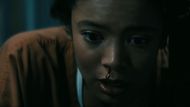From the very first episode of Gen V Season 2, the stakes are already sharpened. Set in Homelander's America, the latest season of the series shows a world where propaganda is the only tool that prospers and fear is the only tool that fuels power.
With that being said, Season 2 goes above and beyond when it comes to looking at the political state of the world right now. It also does not simply focus on politics, but also mental health.
Gen V Season 2 does a great job of exploring how grief, trauma, and identity struggles all come to a head and clash with each other in a kind of world that glorifies strength but punishes vulnerability. It sure does draw from the real and actual political climate we find ourselves living in today.
The one question that Season 2 asks is simple: What happens when young heroes start realizing that the real enemy might be inside their own minds?
Power, propaganda, and the politics of fear in Gen V Season 2
Gen V Season 2 thrives on uncomfortable truths. The political chaos in the show mirrors a society driven by manipulation, misinformation, and blind loyalty. With Homelander's shadow now cast over America, "truth" has become a matter of who controls the mic.

Inside Godolkin University, Dean Cipher embodies that power. His agenda isn't to train heroes but to build soldiers loyal to a cause that benefits only the powerful few.
The season plays like a mirror to real-world polarization. Students are split into factions: HomeTeamers who worship Homelander and Starlighters who still believe in doing what's right. The school becomes a battlefield of ideologies, where every speech and every news ticker feels like a political campaign ad gone wrong. Cipher's chilling calm and manipulation of the students make him one of the most intriguing villains in the Boys universe.
Unlike The Boys, which leans heavily on satire, Gen V Season 2 feels frighteningly real. It doesn't scream its politics out; it whispers them through propaganda, loyalty tests, and psychological control. It's less about superheroes fighting villains and more about how systems twist people into believing that they're the good guys.
Superpowers as symptoms in Gen V
Every power in Gen V Season 2 comes with a price, and that price is mental health. The show doesn't treat powers as gifts; it treats them as burdens, metaphors for trauma, self-hate, and the desperate search for identity.
Marie's control over blood reflects her internal war with guilt and self-harm. Her powers are violent but intimate, tied to memories of losing her parents in a tragic accident that she can't stop replaying in her mind.

Jordan's bi-gender shifting continues to challenge the world around them. Their ability to change forms becomes a raw exploration of identity, examining how society demands a label even when you don't fit into one. Each transformation is less about showing off and more about surviving judgment, both from the public and themselves.
Emma's shrinking and expanding abilities echo eating disorders and body image battles. The idea that she must harm herself to use her powers hits hard. It is also a painful reminder that self-worth isn't always visible.
Meanwhile, Sam's storyline, with his hallucinations, rage and fragmented sense of reality, turns superhuman strength into a metaphor for mental illness. He's not broken because of Compound V; he's struggling because of the human pain that existed long before it. And the best part is how Gen V Season 2 doesn't glamorize any of this. It just lays it bare.
Grief and growth: A generation coming undone
This season also reflects deeply on grief. Andre's absence (following Chance Perdomo's passing) isn't just brushed aside and it is dealt with beautifully, to the extent that it, in some way, becomes the emotional and driving force of the story.

It is well known that everyone has a different way to grieve, and we do get to see that in the series. We get to see each and every character go through and feel that loss differently. Whether it be through guilt, anger, or even withdrawal. The show lets these angles sink in. Instead of rushing things, and brushing away the emotional arcs of the story for it to move forward, Gen V Season 2 uses grief as a spark for growth.
Marie's refusal of self-harm marks a powerful shift from pain to purpose. Emma's slow recovery and awareness of her mental health make her one of the most quietly inspiring characters on screen. Jordan starts to finally accept both sides of their identity, not as opposites but as parts of one self.
Even Sam, who once lived in denial, begins confronting his trauma, finally understanding that healing doesn't mean becoming someone else but what it truly means is that you start forgiving who you were.
And under all of this runs the season's true question: How do you stay human in a world that punishes you for it? Gen V Season 2 doesn't have easy answers to it, but that's what makes it so moving and realistic. It turns pain into power, vulnerability into rebellion, and it looks into the aspects of chance for self-discovery.
Gen V Season 2 proves that superhero stories don't need capes and glory to hit the right notes. They just need truth. Superheroes have always been political. By combining political satire with firm portrayals of mental health, it gives voice to a generation that's angry, hurting, but a generation that is still hopeful.
The season reminds fans that the greatest battles aren't fought in cities but they're fought in our minds. Darker, sharper, and a lot more thought-provoking, Gen V Season 2 doesn't just expand The Boys universe; it forces us to face the mirror it holds up.
Stay tuned to SoapCentral for more.
